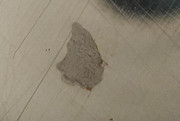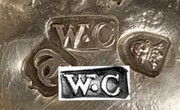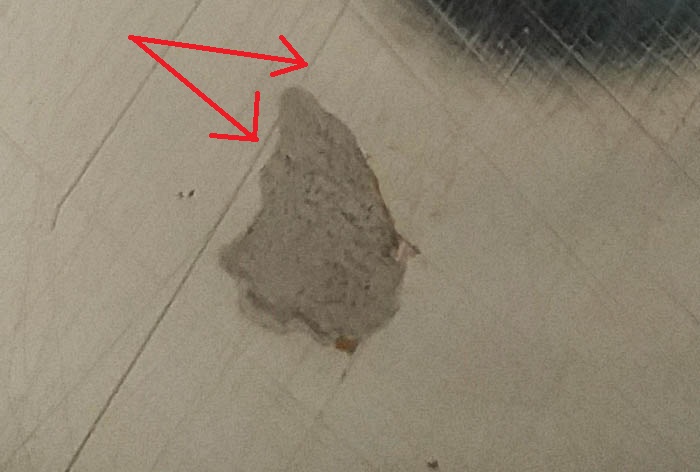I noticed a strange thing.
There was a slightly darker speck on the pitcher's surface. I tried to clean it with a silver polish, but the stain remained. Looking through a lens, I saw that it was not a spot, but a discontinuity in the plate.
I am attaching a photo, but it is not very clear.
The discontinuity is less than 1 millimeter.

I tried putting a tiny drop of acid on it, and it didn't turn red. What to think ? Could it be an inclusion of another metal in the processing of the plate?
Is this a fact that happens often, or sometimes, or never seen before?
The piece feels genuine to me, completely hand wrought, and the hallmarks seem genuine, at least to me.
I hope someone knows how to shed some light on this fact.
Thanks for attention
Amena




